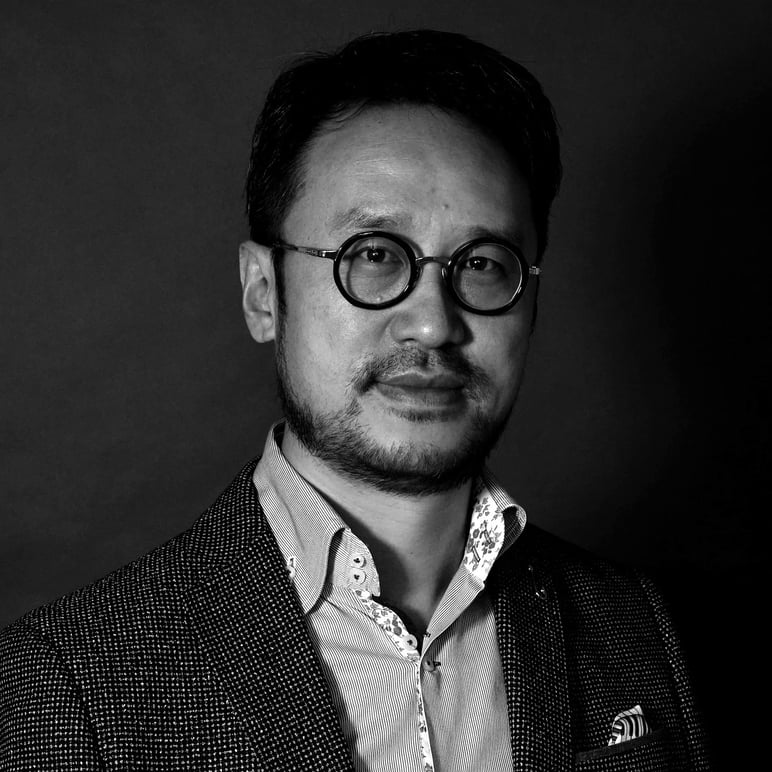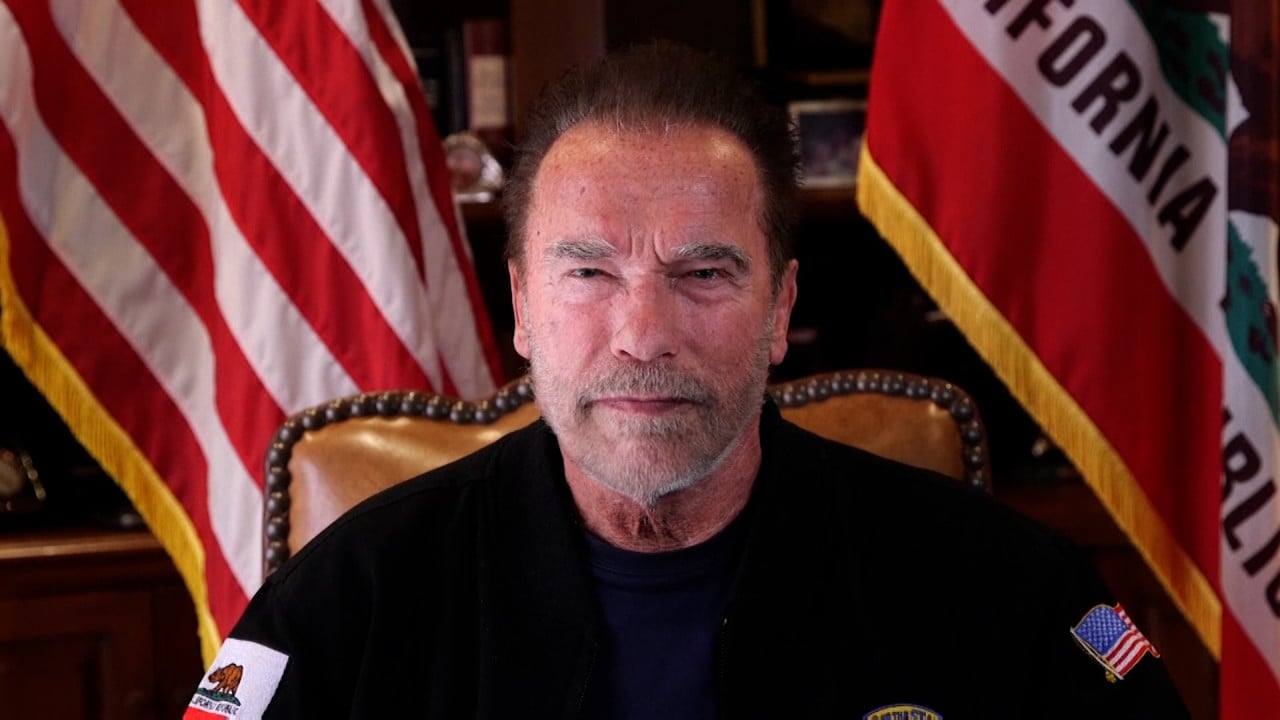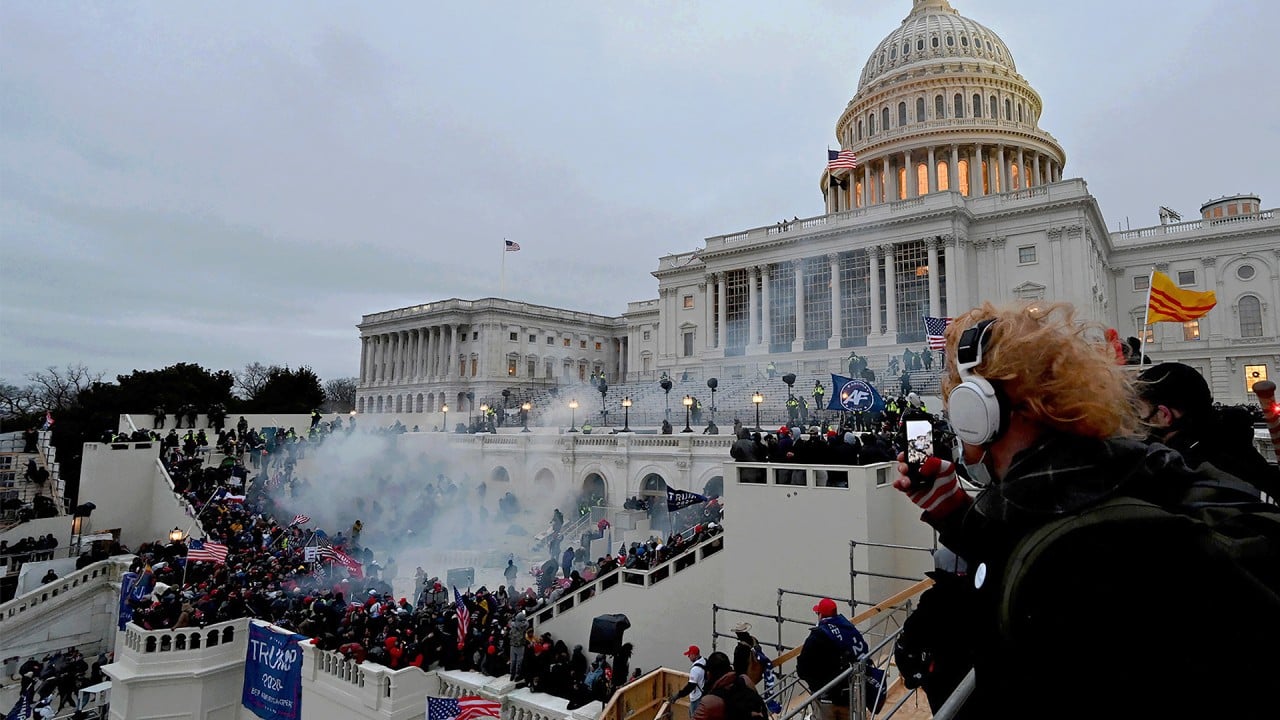
Chaos at the US Capitol was a Trumpian farce, with shades of Mao
- Sensing a disconnect between elites and the masses, a populist leader losing his grip appeals to the grass roots to save the country. Sound familiar?
- While there are parallels between today’s US and Mao-era China, it’s not clear America will heed the warning. This is Biden’s biggest challenge
Karl Marx’s famous line that “everything happens twice in history: the first time as tragedy, the second time as farce” again proves to be right on the nose.
Numerous comparisons have been made. Some have likened the scenes to the sack of Rome by the Vandals in 455 while others, such as former California governor Arnold Schwarzenegger, have compared them to the “Night of Broken Glass”, Nazi Germany’s November 1938 pogrom against Jews.

02:30
Schwarzenegger compares US Capitol siege to Nazi violence, calls Trump ‘worst president ever’
A populist leader with a huge following is fearful of losing his grip on power and place in history. Having lost faith in the political mechanism and his party members, he decides to appeal directly to millions of loyal grass roots followers.
The message is simple: our cause is betrayed and our country in danger. Come to the capital and let’s drain the swamp.
When the boisterous Trump “redneck” supporters swarmed the Capitol building, they were as triumphant and euphoric as Mao Zedong’s “red guards” greeting the dear leader outside Tiananmen half a century ago.

Mao’s Cultural Revolution was essentially a war against the establishment and the political elite who, the Great Helmsman feared, had lost their ideological purity and become disconnected from the masses.
‘The Washington Spring’ or just a blip? How Asia saw chaos at US Capitol
A siege mentality developed after the Korean war and the split with the Soviet Union added to his anxiety and sense of urgency.
The Chinese Communist Party official website describes this historical period as an “internal turmoil” that caused “catastrophic consequences” to the party and the people. It was triggered by Mao’s desire to maintain ideological purity and refocus the nation’s mind on “class struggle”, it says.
“He believed that only by directly, openly and fully appealing to the public and mobilising the masses could [he] expose the dark elements in the party and government and take back the country”, the website reads.

05:52
Trump supporters storm US Capitol, interrupting Congress’ certification of Biden’s victory
Trump also sensed a widening gulf between America’s ruling elite and the rust belt populace, who felt disenfranchised by globalisation and anxious about a perceived loss of purity of their American identity. One of his election slogans was “I’ll take you back to a country you recognise.”
Similar xenophobia and existential crisis pervade American society today.
Mao’s adage “power grows out of the barrel of a gun” is equally on the mark. Fortunately for America and the world, Trump never came close to Mao in terms of popular support and absolute devotion – for every vote he received, more voted against him. Trump also never commanded the respect and loyalty of the US military.
The power that grew out of Twitter tweets proved much fickler. More importantly, the checks and balances of the US system withstood the test. Instead of 10 years of tragedy, the Capitol uprising ended after 10 hours of farce.

Even the one-time reality show host himself must realise the game is over. To the optimistic mind, the silver lining of the whole saga is proof that the democratic system does work after all. Democracy is sometimes messy and chaotic, but at least it puts power maniacs in a straitjacket.
This is perhaps true, but it is far from clear the American story will end on a happier note.
The Cultural Revolution was a great shock to the system for the Chinese. When the ideological fever finally subsided, the minds of Chinese people, from the elite to the general public, were singularly focused on development. Under the leadership of Deng Xiaoping, China embarked on a path of pragmatism. Ideological conflicts have not disappeared completely but are kept under control at all costs.
As American exceptionalism falls, Chinese exceptionalism rises
The US is a different system. The farcical Capitol uprising serves as a telling warning of the great divide in the country’s sociopolitical life. Whether the incident will be enough of a shock to the system that it rallies both the public and elite behind a torn country is a big unknown.
This will be the biggest challenge facing new president Joe Biden, as he is sworn in this week.
Chow Chung-yan is the South China Morning Post’s executive editor

